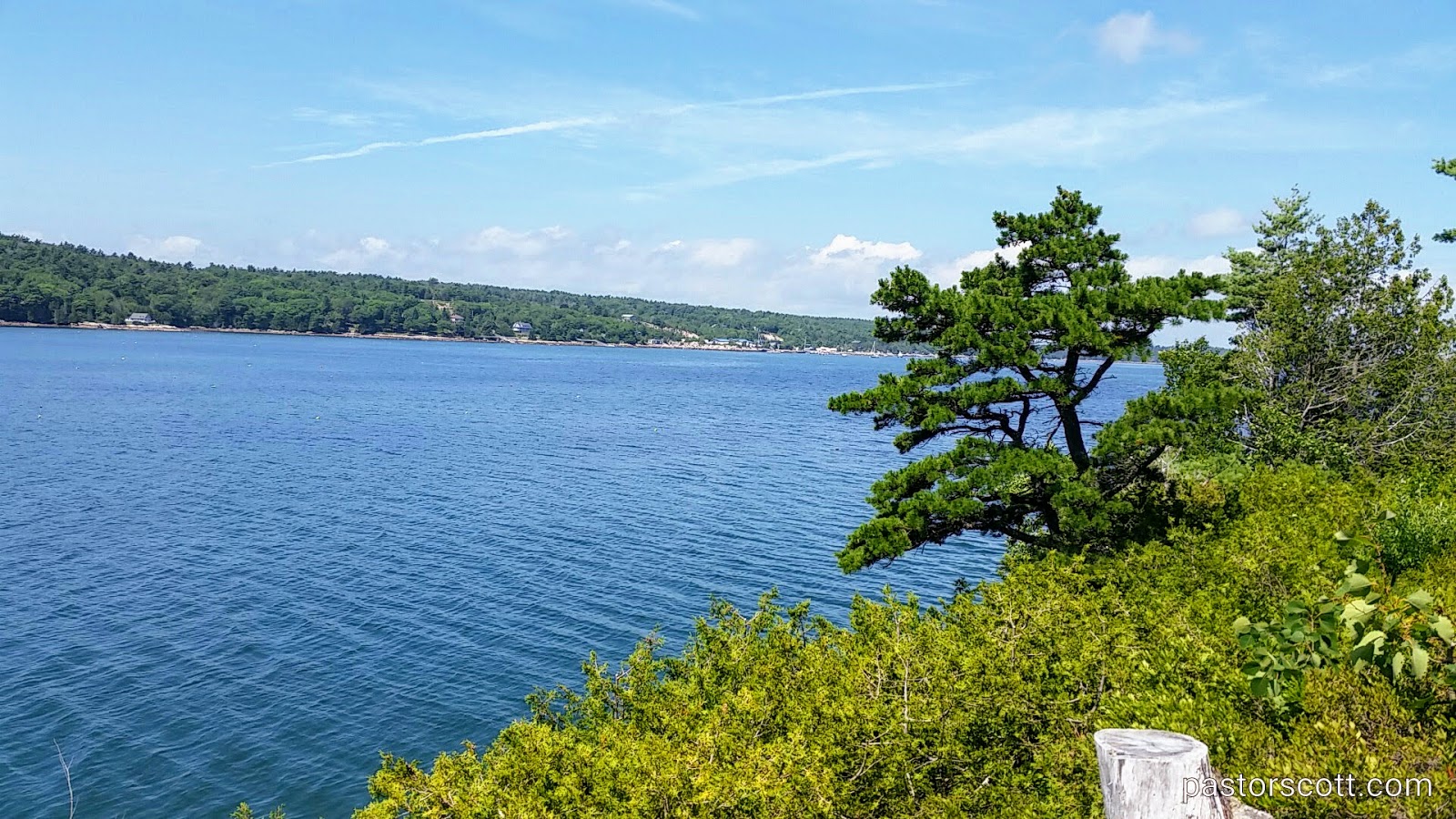
From generation to generation
Ezra 1: Who among you belongs to his people?
Nebuchadnezzar, it turns out, is the last strong king of Babylon and his destruction of Jerusalem comes near the end of his reign. Before long a new world power rises to swallow Babylon. Cyrus has united the Medes and the Persians, creating a powerful and ambitious kingdom. While it’s probably true that Babylon would have fallen under its own weight anyway, the Persians speed things up to dominate the entire region. For the scattered people of Israel, it appears to simply be a change from one conqueror to another. However, this point of view fails to take the hand of the Almighty into account. This new ruler doesn’t have the negative emotional baggage toward these people that Nebuchadnezzar had. He saw them as a stubborn and rebellious people. Cyrus, on the other hand, wants their God to look on him favorably. A series of events causes him to authorize the rebuilding of the Temple that was destroyed before he was ever born. Because of that he offers these second and third generation exiles permission to return to Jerusalem for that purpose. Many of the Hebrews are satisfied to stay where they were, after all this is the land of their birth. However, some, possibly influenced by the writings in the Chronicles are willing to embark on this challenging adventure. As I work through this material I’m reminded that God is the God of History. From generation to generation he continues to work. People are born, live, and then die, passing from the pages of history. However, God always “is.” There are countless individual stories to be told but through it all, there is just One God.
Take Away: There are many stories to be told, but only one God lives and reigns through them all.
Tag: Book of Ezra
Devotional on Ezra

Singing in the ruins
Ezra 2: God is good…he’ll never quit loving Israel!
Tens of thousands of people take Cyrus up on his offer for exiles to return to Jerusalem and rebuild the Temple. I imagine they’re quite disappointed when they arrive there. The city is no city at all, just a pile of ruins. The Temple they’ve come to rebuild simply exists no more. This is no “fix up” project. Instead, it’s to be the construction of an entirely new building on the site of the old one. None of these returning exiles realize what a difficult and decades-long project it will be. Still, they get started and soon lay the foundation for the new Temple. That, in their eyes is reason for celebration. The religious leaders, who are already ministering in a temporary arraignment, plan the service and everyone attends. The special song is, “God is good…he’ll never quit loving Israel!” There’s more to this song than we might think. Around 60 years earlier their parents and grandparents had been taken from this land when God had had enough of their sinful rebellion. Even as they sing this song they stand in the ruins of their holy city, destroyed because of the decree of God. Now, as they gather to worship they sing of God’s goodness and of his unfailing love to them. Again, this is more than a random special song. This is a declaration of faith. They proclaim that God is, indeed, a good God who loves them and still wants to be in fellowship with them. Such a declaration of faith in God’s goodness is a powerful thing. I wonder if my own faith is of the same quality as theirs. Can I stand in the ruins of my dreams and sing of the goodness and love of God?
Take Away: The Lord is good and kind and loving, full of mercy and grace. That’s true when the sun is shining in my life. It’s also true when things aren’t going as I want them to.
Devotional on Ezra

The remember-ers
Ezra 3: People couldn’t distinguish the shouting from the weeping.
Joining the young adventurers in returning to rebuild the Temple at Jerusalem are some who, as young children, saw the Temple before its destruction. When they hear of the expedition to Jerusalem they bravely sign up to return to the land of their birth. These people have stories to tell of what life was like in Jerusalem before it was destroyed. When they stand before the pile of stones that was the center piece of the city their memories are almost more than they can bear. More than anyone else these senior adults realize all that’s been lost. Now, as the foundation for the new Temple is being laid and the dedication celebration is taking place, the younger people shout in excitement. These “remember-ers,” however, begin to weep aloud. Their weeping is a mixture of sadness and joy. They join with the younger people in rejoicing over prospect of the place of worship being rebuilt but they’re saddened as they remember just how much has been lost. The rebuilding of the Temple means a return to God. For the younger people, this is something new and thrilling. It takes the senior adults, those who’ve been “around the block” a few times, to fully appreciate the power of this event. As I hear these white-haired people weeping aloud I’m reminded of the depth some precious “senior saints” provide to my life.
Take Away: Senior Christians offer a depth of perspective that won’t come from any other source.
Devotional on Ezra

Professional discouragers
Ezra 4: They even hired propagandists to sap their resolve.
Beyond the actual challenge of rebuilding the Temple in the ruins of Jerusalem is the presence of those who oppose the project. People from distant lands were exiled to this area in the same way that the people of Israel were moved elsewhere. Now, the new residents (and I say “new” guardedly because they’ve been there over 60 years) view the presence and work of the Jews with suspicion and hostility. At first these people offer to participate in the project, but it’s almost certainly an offer made with ulterior motives. When that fails, they go to work trying to stop the work. At one point they even hire people to give their time to discouraging the builders and those “discouragers” pretty much succeed. For 15 years the big project limps along and then, thanks to a carefully worded letter to the new king, the work is stopped altogether. This incident is a good reminder that we should never deceive ourselves into thinking that because we’re doing the right thing and giving sacrificially to the work of God that things are going to go smoothly. For one thing there are some “professional propagandists” (some of them on the “inside” of things) who’ll do all they can to divert our attention away from that to which we’re called.
Take Away: Beware of listening to, or even worse, being, a professional discourager.
Devotional on Ezra

God and “good old boy” politics
Ezra 5: Who issued you a permit to rebuild this Temple and restore it to use?
Years ago our small south Texas congregation was preparing for a building project. For a larger church, this would have been a drop in the bucket, but for us, it was a big deal. One key element was that we needed a city code variance to build a few feet closer to the street than was normally allowed. The whole project depended on that variance. We went to the city planning commission and presented our case. They took it under advisement and then turned us down. This put our project back to stage zero. Disappointed, we went back to the drawing board. A couple of weeks later I noted that the small grocery store across the street from our church was getting ready to do some remodeling. It just so happened that they needed (you guessed it) a zoning variance that was almost exactly the same as the one we had had rejected. No doubt, small town politics had a hand in it and their variance was approved. We went back to the city and asked to be put on the agenda for the next meeting. When our turn came, one of the members asked, in a perplexed voice, “Isn’t this the exact same plans that we turned down a few weeks ago? What makes you think we’ll accept them now?” I patiently replied, “We think you should reconsider in light of your giving the grocery store next door to us a variance to do the exact same thing.” There was a moment as the facts of the matter became apparent to the commission, then one of them said, “I think we should give the church its building permit.” Isn’t it interesting how the Lord can navigate through small town politics? In light of the passage before us, we see that he’s just as good in working through big government. Never count God out of the equation.
Take Away: The Lord can handle building permits, city ordinances, and such.
Devotional on Ezra

God and construction projects
Ezra 6: …you are to help the leaders of the Jews in the rebuilding of that Temple of God.
Orders to stop rebuilding the Temple brought the project to a halt for about 3 years. In time, two prophets, Haggai and Zechariah, began to urge the people to get back to work. Now, the precise chronology of the letters and which king wrote what is a bit muddy, but that doesn’t diminish the actual story here. First, the king receives a letter that causes him to issue a stop order to the Jews who are rebuilding the Temple. Then, upon the urging of the prophets, the work is started again. The regional governor writes to the king to report what’s happening, and, upon review, the king finds that years earlier they had not only been given permission to rebuild, but were ordered to do so. He responds by directing the governor to allow the work to continue, and beyond that, to assist in any way he’s asked to. The temporary halt to the program actually results in the full support of the current king and speeds up the process. Even though there’s a bit of a mystery in these passages about who is king when there’s a clear message that God works even through what we see to be road blocks to our obedience to his will. This is a difficult lesson for us to learn, as we want green lights all the way before we even start. It’s hard to understand how God’s “go” and how the on-the-ground circumstances that force a “stop” can be working together, but, sometimes, that’s just how it is.
Take Away: The Lord works through circumstances beyond our control to accomplish his purposes.
Devotional on Ezra

God’s man at God’s time in God’s place
Ezra 7: Ezra had committed himself to studying the Revelation of God, to living it, and to teaching Israel to live its truths and ways.
Ezra doesn’t make an appearance in the book of the Bible that bears his name until well into the second half of the book. By the time he arrives in Jerusalem the Temple project is complete and worship activities have begun there. This direct descendant of Aaron, the first priest of Israel, is as much historian as he is priest. In spite of his being born in a land far from Jerusalem, he committed himself to the study of God’s Word. Because of this he’s both a priest and a scholar. It’s this that makes him so valuable to the returned exiles. They have a Temple and now they need a spiritual leader to help them learn how to be a people of God. Ezra is God’s man at God’s time in God’s place. The verse quoted is a preacher’s dream! There are three obvious points and each provides lots of preaching material. First, Ezra has committed himself to studying God’s Word. Second, beyond studying it, he personally lives it. Third, he has a burning desire to teach God’s ways to others. It is when he’s given the opportunity to do the third goal of his life that Ezra travels to Jerusalem to be the leader and teacher of God’s people there.
Take Away: Thank the Lord for putting the right people in the right places at the right times in history.
Devotional on Ezra

Putting your money where your mouth is
Ezra 8: I proclaimed a fast there beside the Ahava Canal.
Ezra tells us his own story starting in the middle of chapter 7. His desire to join the returned exiles in Jerusalem is infectious. Several Jewish families are ready to join him in this great adventure. Beyond that, Artaxerxes the king becomes excited about the project and gives Ezra all the support needed for him to go to Jerusalem, to rule there, and to oversee the worship of Jehovah God there. Even people who aren’t relocating to Jerusalem make generous donations. Ezra puts out word that the great caravan will be formed at the Ahava Canal and people begin to gather. At first a few, then more, and then a great flood of people come, all with their families and their belongings. Suddenly Ezra realizes what an undertaking this is. In some ways he’s like Moses about to lead the people to the Promised Land. They have hundreds of miles to travel across sometimes desolate and lawless territory. He knows he ought to ask for a military escort, but can’t bring himself to do that because he’s told Artaxerxes how God’s hand is on his people and how God blesses and protects those who serve him. At this point Ezra decides he must practice what he preaches. Instead of calling for soldiers he calls for a fast. Before beginning this possibly perilous journey, they’ll call on the Name of the Lord asking for his guidance and protection. I think that not only is the king impressed by Ezra’s trust in the Lord, but that God is pleased too. Decades earlier the ancestors of these exiles had turned to military alliances with Egypt and other nations when faced with great danger. Ezra gets this enterprise started on the right foot: he calls on God.
Take Away: Better to have the protection of the Lord than to be surrounded by all the armies of the earth.
Devotional on Ezra

The power of intercessory prayer
Ezra 9: My dear God, I’m so totally ashamed, I can’t bear to face you.
Ezra and his large caravan of returning exiles are very welcome in Jerusalem. However, it’s not long before Ezra learns that there’s a big problem. The Jews already in the area have intermingled with the other peoples of the area to the point of intermarrying. This is a clear violation of the Law of God and Ezra’s devastated by such blatant failure. He came to Jerusalem to teach people who he believed wanted to learn how to worship God. He assumed that they were already the “people of God” and that they only needed someone to teach them how to live as the people of God. Now he finds that they’ve broken the covenant with the Lord in the most basic way by allowing themselves to be absorbed into the cultures around them. Ezra mourns this situation and then begins to pray. Here’s the thing: his prayer isn’t for “them” as much as it’s for “us.” Their sin, in his eyes is shared by all of their people and his prayer is a cooperate prayer. How often do I pray that way? I pray about “those” bad people who are attacking and tearing down moral values in my society and I pray that I might be protected from “those” evil people who would do me and those I love harm. There’s a time and a place for such prayers, but, taking my cue from Ezra, there’s also a place for cooperate confession. Ezra isn’t married a heathen woman, yet he comes to God “totally ashamed” by this breaking of God’s Law. He tells the Lord, “We have thrown your commands to the wind” and confesses that “we” are “openly guilty.” As he prays this prayer of confession others began to weep and repent – others who have actually done the sinning! Here, I think, is the power of genuine intercession. Ezra identifies himself with their sin and then, they identify themselves with his repentance.
Take Away: There’s power in intercessory prayer.
Devotional on Ezra

From repentance to restoration
Ezra 10: Now get up, Ezra. Take charge – we’re behind you.
The response to Ezra’s prayer of confession is nothing less than transformational. Even as he cries out to God in his brokenness, God speaks to the hearts of those who’ve been in charge as things among the Jews in Jerusalem unraveled. They humbly come to Ezra confessing their sins but also confessing their faith that “all is not lost” and that there’s “still hope for Israel.” Now, all they ask is for Ezra to take charge and help them find their way back to God. That’s just what Ezra does, and the short book that bears his name is concluded with the route to restoration he lays out. Ezra’s broken heart over the sins of the people, including his willingness to embrace their sin as his own, is an incomplete story without this. For me to convince people of their sin and to even join them in confessing that sin as “ours” is a wonderful start. Still, most people need help in moving from repentance to restoration. To assume this role is a great privilege and responsibility.
Take Away: It’s such a privilege to help people find their way to the Lord.
